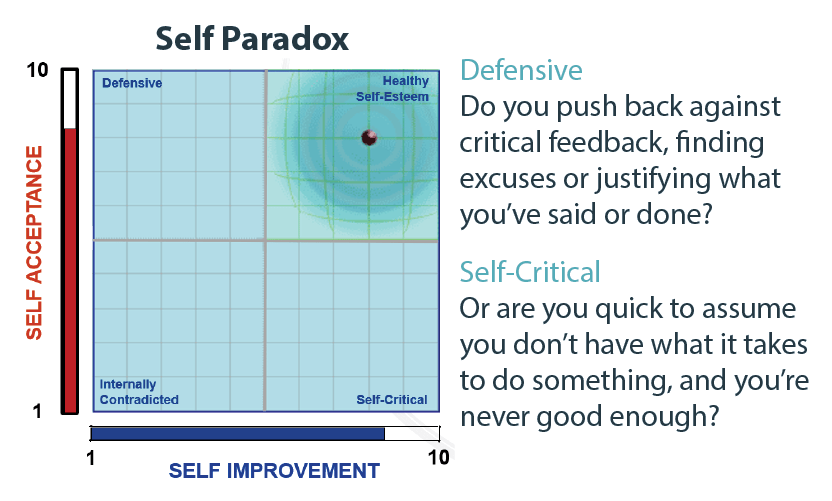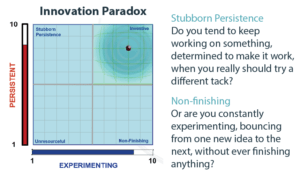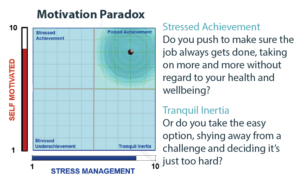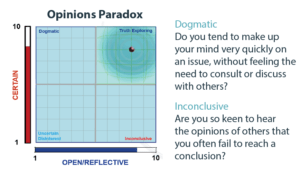
READ: Growth Mindset Magic: Are you missing out?
There is a magical approach that forward-thinking businesses are now implementing in order to succeed in a volatile and uncertain business environment. However, most businesses are so fixed in their thinking that they’re missing the obvious. This means they are alienating more than 50% of their workforce. In May 2017 my business partner at Talent4Performance, David Klaasen, wrote a fascinating article entitled: 4 Steps to Increase Learning and Growth, explaining the benefits, and the steps you can take to change from a fixed to a growth mindset.
What is a Growth Mindset?
Drawing upon research and writings by Dr Carol S. Dweck, this is based on the belief that your basic qualities are things you can cultivate through your efforts, your strategies, and help from others. Individuals who believe their talents can be developed (through hard work, good strategies and input from others) have this quality. They tend to achieve more than those with a more fixed mindset (believing their talents are innate gifts).
Almost a year on from David’s article, and organisations of all shapes and sizes are becoming increasingly aware of the potential to improve leadership performance and nurture leadership potential, just by focusing on the development of a growth mindset. Educators in particular have seen the importance of a growth mindset in schools, and are set to produce a new generation of young people with high expectations of their employers as they join the workplace over the coming years. Forward-thinking businesses are also seeing the potential benefits to this simple but powerful approach.
Growth mindsets in business
A shining example is Microsoft, which is deliberately creating a growth mindset culture and, in that context, rethinking its approach to development. The company is already seeing the benefits in the form of more-innovative ideas and products — and employees are developing leadership skills in unexpected places, at every level. 2
Of particular interest in the current climate where there is a sharp focus on the treatment of women in the workplace, is a series of studies by Emerson and Murphy 3. These showed that the effect of an organisation having a fixed or this kind of mindset is significantly more marked for women than for men. When companies espouse a growth mindset, it conveys to women that their ability is not fixed or static in the company’s eyes, and they will be rewarded based on how they perform—not who they are. This can affect women’s levels of trust in the organisation, impacting on the entire talent management cycle including recruitment, engagement, development and retention.
The potential benefits of encouraging individuals, teams and entire companies to focus on developing a growth mindset seem clear. So how do we know if we have this or not, and how do we know what to focus on to encourage a shift?
Growth Mindset as a Behavioural Competency
At Talent4Performance we’ve used Harrison Assessments to capture the key ingredients of a growth mindset in the form of a Growth Mindset Behavioural Competency. The competency includes 10 essential traits, 10 desirable traits, and 6 traits to avoid, drawing from the 175 factors measured by the single SmartQuestionnaire. The Behavioural Competency Analysis report shows an overall percentage score indicating your fit against the competency, and a detailed breakdown of your score against each of the 26 traits, showing how each of these impacts positively or negatively on your behaviour in a growth mindset context.
So, for an individual, it’s now quick and easy to identify the extent to which you already have, and precisely which aspects of your behaviour are best to focus on for ongoing development. Using the same data, it’s also possible to analyse scores and trait patterns for teams, or for whole organisations, providing a simple approach for benchmarking and driving more strategic culture change initiatives.
Growth Mindset Paradoxes
In our increasingly volatile and uncertain world, leaders often face dilemmas and paradoxes requiring a ‘both/and’ rather than ‘either/or’ approach. Developing a growth mindset is a good example of this, as it requires balance across a range of seemingly opposite behaviours. Harrison Assessments uses a Paradox Methodology to explore an individual’s preferences and behaviours, identifying both potential strengths and factors that could hinder their success. When you have strength in both paradoxical traits, you have balanced versatility, and the key ingredients for success. From the 12 Harrison Assessments paradoxes, four are particularly significant for a growth mindset:
• Healthy Self-esteem – the tendency to accept oneself while at the same time, trying to improve oneself.
• Inventive – the tendency to experiment with different ways of doing something while at the same time maintaining focus on the desired objective or result. 
• Poised Achievement – the tendency to be self-motivated while at the same time managing stress. 
• Truth Exploring – the tendency to explore different viewpoints and formulate conclusions without becoming fixed in one’s opinions. 
Once you fully understand your preferences, you are better able to play to your strengths and work on developing balanced versatility.
Developing a growth mindset is very straightforward, with some insight, self-awareness and purposeful practice. This simple but powerful approach that forward-thinking businesses are now implementing will help you engage with 100% of your workforce, increasing productivity and profits. Why not find out for yourself how you can develop and inject a little magic into your business?
Contact me at alli@talent4performance.co.uk to find out how you measure up against our Growth Mindset Behavioural Competency.
Best wishes,
Alli Gibbons
Need help motivating your leaders? Get in contact with Talent4Performance.
Schedule a FREE 30-minute CONSULTATION with Alli Gibbons
Talent4Performance help business leaders clarify complexity. We inspire people and drive continuous performance improvement, so they can convert thinking into action and results.
References:
1 ‘Mindset – Updated Edition: Changing The Way You think To Fulfil Your Potential’ by Carol Dweck
2 ‘How Microsoft Uses a Growth Mindset to Develop Leaders’ by Carol Dweck and Kathleen Hogan in Harvard Business Review, 7 October 2016
3 ‘A Company I Can Trust? Organizations’ Mindsets About Ability Shape Women’s Experience of Stereotype Threat at Work.’ by Jess Hennessy on MindsetScholarsNetwork.org



